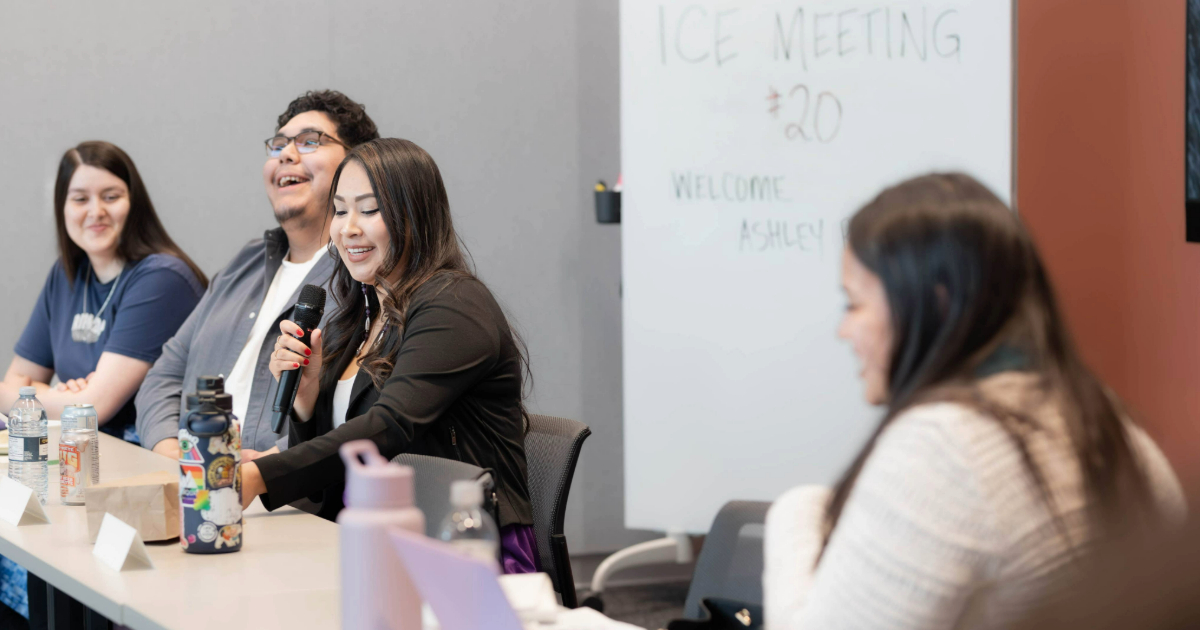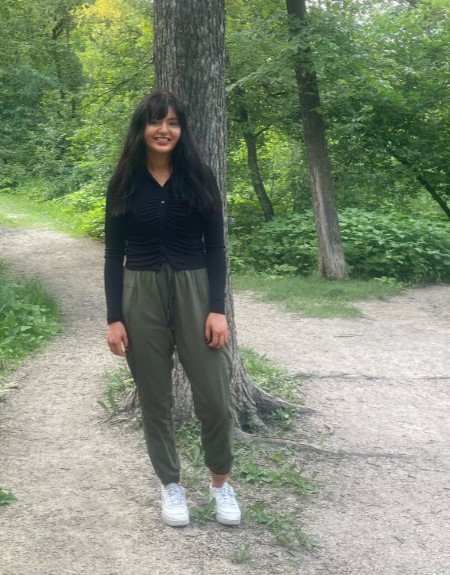
2024 ICE workshop. Photo by Reanna Khan
Empowering Indigenous student leaders
Indigenous Circle of Empowerment applications are open
Brooke Anderson Baptiste was looking for an opportunity to get more involved in the Indigenous community on campus when she came across the Indigenous Circle of Empowerment (ICE) online—and knew she had to apply.
An Indigenous student leadership development program at the University of Manitoba, ICE offers opportunities for personal and professional growth through culturally grounded leadership development and community engagement.
“Through ICE, Indigenous students get to have a space and community—that was important for me,” says Anderson Baptiste. “I haven’t always been as connected to my culture as I wanted to be, but ICE is a safe space with people who understand my personal experience.”
In the program, students participate in activities to nurture their leadership skills, including professional development workshops; cultural opportunities like preparing for and participating in a sweat lodge ceremony; volunteer work; Speech Craft training with the Anishinabe Toastmasters; and a capstone team project called “Day in the Life of an Indigenous Student at the U of M.”
At the forefront of the program are speaker sessions that allow for conversations with inspiring Indigenous leaders in different fields of interest, like confidence coach Jessica Dumas and Feast Café Bistro owner Christa Bruneau-Guenther, who spoke on entrepreneurship and reclaiming Indigenous foods to the 2023-24 ICE cohort.

Student Brooke Anderson Baptiste
“A lot of us are the first generation [in our families] to attend post-secondary, so it’s beneficial to hear from all of the Indigenous leaders and see what we can do with our education,” says Anderson Baptiste, a political studies and economics student from Samson Cree Nation. “Listening to each speaker brought me new perspectives on what it means to be a leader.”
For Anderson Baptiste, hearing from the Honourable Nahanni Fontaine, Minister of Families, was especially impactful. “She talked about her experiences when she was 20, and I’m 20 right now… we need to acknowledge the trauma that a lot of us go through but the amount of talent and knowledge we offer,” she says.
As part of a team project, ICE students also had the opportunity to host a two-day event that brought Indigenous high school students to UM to experience real lectures, a student-led panel on preparing for university, campus tours and an Elder-led Sharing Circle.
Students in the 2023-24 cohort also participated in 16 organized volunteer opportunities with Mama Bear Clan, Mitch Bourbonniere’s Ogijiita Pimatiswin Kinamatwin and Siloam Mission. They also joined program coordinator Sadie Lavoie for the Memorial Walk for MMIWG2S and a Winnipeg Chamber of Commerce luncheon, among other special events.
“Students benefit from the confidence-building and networking, both within the Indigenous community and on campus,” says Justin Rasmussen, director of Indigenous leadership programming in the Office of the Vice-President (Indigenous) at UM. “Students are well-connected after graduation, and they graduate with fellow Indigenous leaders in ICE.”
In April, over 100 attendees gathered at The Leaf in Assiniboine Park to celebrate the 25 student leaders—the largest cohort in ICE history—for completing the program, all of whom received an ICE jacket or moccasins during a special ceremony.
ICE is open to Canadian Indigenous (First Nations, Métis and Inuit) students who have completed 30 credit hours or more of coursework (with a minimum GPA of 2.5) and who maintain at least 60 per cent of a full course load (or equivalent). Applications for the 2024/25 cohort are open until Sept. 16. Follow ICE on Instagram and apply for the program today!
*For Indigenous students who have completed less than 30 credit hours of coursework and are looking for a leadership development program, the Bison Spirit Leadership Program is also accepting applications until Sept. 16.






